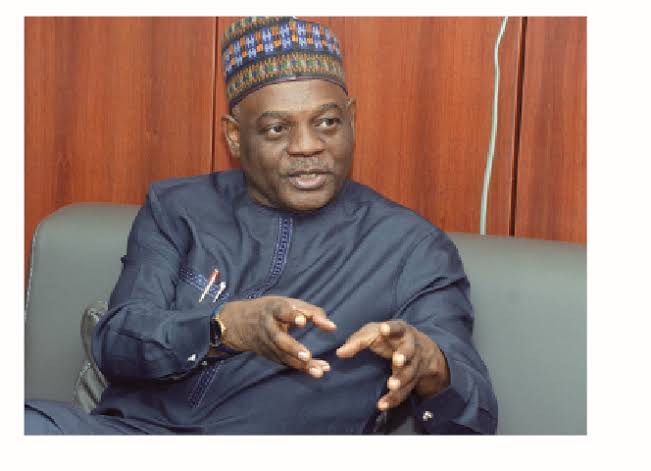News Investigators/ Federal Government says it is developing a framework for bonding students sponsored abroad, to ensure they return to contribute to Nigeria’s development after completing their studies.
Sonny Echono, Executive Secretary, Tertiary Education Trust Fund (TETFund) disclosed this on Wednesday in Abuja while delivering his welcome address at a maiden edition of TETFund National Town Hall Meeting.
The News Agency of Nigeria (NAN) recalls that the Minister of Education, Dr Tunji Alausa, recently raised the concern that 85 per cent of Nigerian students sent abroad on government scholarships never returned to contribute to national development.
Mr Echono said this move would encourage Nigerians on government scholarship to come back and make meaningful impact to the progress of the country.
He described the trend as a major setback to national development.
Mr Echono highlighted President Bola Tinubu’s ongoing reforms to strengthen the education sector and retain skilled manpower within the country.
He said the President had directed the relevant ministries and agencies to develop a framework to check the “brain drain” phenomenon, particularly among beneficiaries of government-sponsored academic training overseas.
“Mr President complained that so many of the people we send abroad for studies do not return, and he felt it was unfair.
“He has therefore instructed that we must put measures in place, not to stop training abroad entirely, but to ensure that those who go are properly bonded and return to contribute their knowledge to national development,” he said.
The TETFund boss explained that the government would identify critical sectors where Nigeria needs to compete globally and ensure that scholars trained in those areas return to apply their expertise locally.
He stressed that the initiative was not meant to punish beneficiaries but to safeguard national investment in human capital.
“When we train people, they must come back to put their knowledge to use here and help build our economy,” he said.
He also highlighted the President Bola Tinubu’s decisive actions, including the increase in education tax from 2.5 per cent to 3 per cent.
Mr Echono added that the President’s firm rejection of proposals to reverse the increment was a clear demonstration of his priority for human capital development.
“The President has consistently shown that education lies at the heart of his Renewed Hope Agenda.
“His decision to raise and maintain the education tax at 3 per cent, in spite pressures to reduce it, is a reflection of his deep belief in education as the foundation for national transformation,” he said.
He said that among the major interventions were the constructions of new student hostels under the Renewed Hope Initiative, with two new facilities scheduled for commissioning before the end of the year in Akwa Ibom.
Other ongoing projects he said includes a campus transportation scheme featuring electric vehicles, designed to modernise intra-campus mobility while promoting environmental sustainability.
He further emphasised President Tinubu’s compassion for Nigerian youth, as demonstrated by the National Student Loan Scheme, a flagship programme aimed at guaranteeing access to higher education for all.
Under the scheme, he said, no student would be denied admission or forced to drop out due to financial hardship, as repayment begins only after securing gainful employment.
“This initiative reflects the President’s belief that every Nigerian child, regardless of background, deserves an opportunity to learn, grow, and succeed,” he noted.
He reiterated the Fund’s resolve to sustain ongoing reforms by expanding access, enhancing infrastructure, and deepening innovation within the tertiary education ecosystem.
Meanwhile, the Chairman, Board of Trustees (BoT) TETFund, Aminu Masari, described the 2025 National Townhall Meeting as a landmark in the Fund’s drive to deepen transparency, inclusiveness, and accountability in tertiary education system.
Mr Masari said the meeting marked a significant milestone in bringing the Fund closer to its stakeholders, following a series of zonal town hall engagements held across the six geopolitical zones earlier in the year.
“This meeting represents a significant milestone in our collective journey toward building a more transparent, inclusive, and responsive tertiary education system,’’ he said.
He acknowledged the President’s visionary leadership and policy direction that have strengthened tertiary education governance.
The BoT chairman outlined three key pillars driving the current Board’s reform agenda including transforming tertiary education into a driver of innovation and productivity.
Other pillars are, strengthening accountability, transparency, and impact measurement; and expanding the frontiers of research, technology, and entrepreneurship.
He emphasised that the overarching goal was to ensure that TETFund’s interventions translate into tangible improvements in teaching, learning, and research while enhancing the global competitiveness of Nigerian graduates.
On his part, the Minister of Information and National Orientation, Mohammed Idris commended the Fund for its transformational role in developing infrastructure, research, and human capacity across tertiary institutions in the country.
Mr Idris, represented by Dr Muhammed Bulama, a former chairman of the Academic Staff Union of Universities (ASUU), described its success as a vindication of the long struggle by university lecturers and education stakeholders.
NAN
